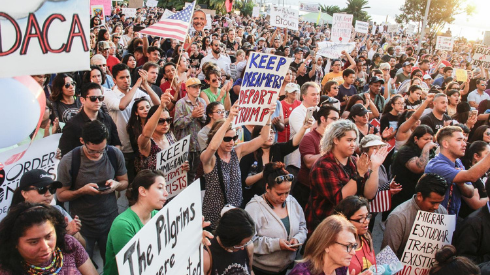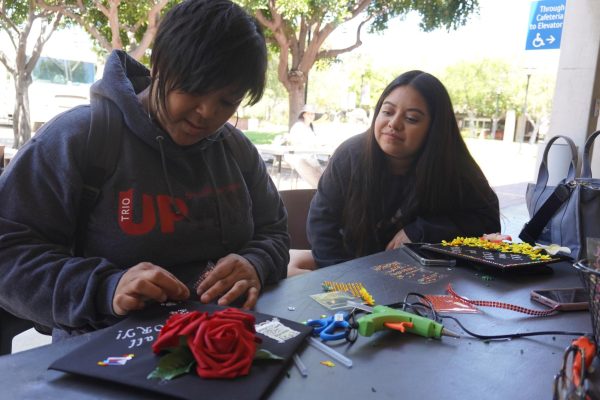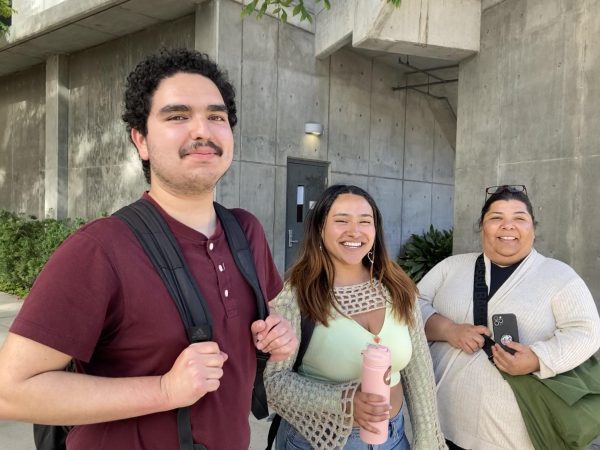California Community Colleges prepare undocumented students for status changes
Webinar covering Temporary Protective Status updates offered in association with the Immigrant Legal Resource Center

Hundreds rally to protest then-President Trump’s decision to end DACA at the San Diego County Administration building on Sept. 5, 2017. City Times file photo
October 1, 2021
To watch Newscene’s in-depth report on proposed changes to DACA, click play.
The California Community Colleges, in collaboration with the Immigrant Legal Resource Center and the California State University Chancellor’s Office, presented a webinar via Zoom addressing updates on Temporary Protected Status on Sept. 28.
For over an hour, Allison Davenport, the supervising attorney at the ILRC, and Krsna Avila, staff attorney at the same organization, discussed reforms the current federal administration is taking on TPS.
Davenport speculated on developments in immigration policy for the upcoming year,
sharing information on the current designated countries that are part of the program, answering questions and doubts that the participants had.
“The pattern so far from the Biden administration is that when they are reviewing the current TPS designations they are protecting TPS, and they made that commitment early on in the administration,” Davenport said.

Comparing past and present administrations, Davenport noted a difference in approach toward the TPS program.
“This kind of attempt to terminate TPS that we saw in the Trump administration, I don’t see that as a real threat under the Biden administration,” Davenport said.
On Sept. 14, 2020, the 9th U.S. Circuit Court of Appeals prohibited the Department of Homeland Security from terminating TPS for El Salvador, Haiti, Nicaragua and Sudan.
According to the U.S Citizenship and Immigration Services, the termination order is still in place at this time due to the court’s failure to issue its directive to the district court, making the ruling ineffective.
The webinar also addressed different eligibility requirements and application processes, as well as deadlines.
“Each family member must submit an individual application, there are some application fees but there is a fee waiver available for those who want to apply as well,” Avila said.
The TPS fee is $545 per applicant, consisting of a $50 application fee, an $85 biometric fee and a $410 employment authorization fee.
There are currently over 400,000 foreign nationals under TPS who have contributed over $6.9 billion to the U.S. economy over the last decade, according to the National Immigration Forum. The largest population resides in California, totaling 17.95%.
The future for TPS holders whose countries’ designations are being terminated is uncertain, but both Davenport and Avila insisted the best strategy for applicants is to request an individual case review from a legal service provider.
For more information, legal advice and updates on TPS policies you can visit the ILRC website www.ilrc.org or the CCC website at www.cccco.edu.













